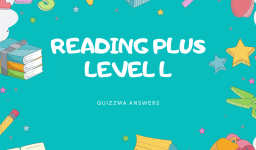In recent times, the process of college admissions has garnered significant attention, owing to its critical role in shaping the futures of numerous aspirants. A key part of this discourse is pivoted around the evaluation metrics employed by admissions committees. Traditionally, the emphasis has predominantly been on quantifiable metrics such as Grade Point Averages (GPAs) and Scholastic Assessment Test (SAT) scores.
However, the article “Beyond GPAs and SATs” delves into an evolving paradigm where colleges are increasingly looking beyond mere numbers to gauge the potential of applicants.
The article embarks on an exploratory journey into the multifaceted nature of college admissions, shedding light on the importance of character and extracurricular experiences.
It posits that a student’s persona and experiences outside the academic realm are instrumental in painting a comprehensive picture of their capabilities and potential to thrive in a competitive college environment.
Moreover, the piece underscores that although academic achievements are undeniably crucial, they do not exclusively define a student’s aptitude or potential. The discussions within the article propel a narrative that encourages a more holistic approach to admissions, one that seamlessly intertwines academic prowess with character and life experiences.
Beyond GPAs And SATs Article Answers
| Question | Answer |
|---|---|
| Which of these is most important to include in a summary of this Article? | B. While academic performance is important in getting into college, a student’s character and experiences outside of school count, too. |
| Which is the closest synonym for the word prioritize? | A. emphasize |
| According to the Article, what is one reason why many colleges use more than grades and test scores when admitting new students? | D. Because college success is hard to predict from a transcript alone. |
| Why did the author include this information? | D. To explain that having good grades is not the only way students can show that they are dedicated. |
| The Article says all of the following except ____. | C. when high school students should begin the process of applying for college |
| Which phrase from the Article provides context clues about the meaning of the word perseverance? | D. stick-to-itiveness that powers people through most of life’s ups and downs. |
| Which of these is a statement of fact? | C. Admissions officials look for students who are passionate about pursuing their interests outside of school. |
| Which passage from the Article best supports the idea that working, volunteering, or playing video games can help you get into college? | A. Experiences outside of school, as well as a student’s character and interests, can have a big influence on admissions officers’ decisions. |
The extracurricular engagements, be it in sports, volunteer work, or even hobbies like video gaming, are heralded as significant indicators of a student’s tenacity, perseverance, and ability to contribute to a diverse college community.
The article presents a compelling argument that such experiences, coupled with a demonstration of character, can significantly influence admissions officers’ decisions.
Furthermore, the article challenges the conventional wisdom that tends to place a disproportionate emphasis on academic metrics, thereby broadening the discourse on what constitutes a well-rounded applicant in the contemporary college admissions landscape.
In light of the above, this introduction aims to set the stage for an in-depth examination of the key arguments, insights, and takeaways from “Beyond GPAs and SATs”, all of which are geared towards providing a nuanced understanding of modern-day college admissions.
Through this lens, the subsequent sections will delve into the summary of key points, vocabulary enhancement, comprehension questions, and a reflective conclusion to provide a comprehensive study guide for readers.
Vocabulary
The exploration of an article not only involves understanding its thematic discourse but also calls for a dive into the linguistic pool that constructs the narrative. This section aims to elucidate some key terms from the article “Beyond GPAs and SATs”, providing definitions and contextual understanding which will aid in better comprehension and retention of the content discussed.
| Word | Description |
|---|---|
| Admitting (verb) | Allowing someone to enter a place |
| Holistic (adjective) | Concerned with everything, not just a part |
| Prioritize (verb) | To arrange items in order of importance |
| Ardent (adjective) | enthusiastic or passionate |
| Diverse (adjective) | different; varied |
| Rigor (noun) | Thoroughness and accuracy |
| Tenacity (noun) | persistence or determination |
| Fractious (adjective) | difficult; troublesome; unruly, quarrelsome, contrary; unpredictable |
| Internships (noun) | positions that offer practical training in workplace settings |
| Daunted (verb) | discouraged or intimidated |

A. Admitting (verb): Definition: Allowing someone to enter a place. Example: The process of admitting students into colleges involves a thorough examination of their academic and extracurricular credentials.
B. Holistic (adjective): Definition: Concerned with everything, not just a part. Example: A holistic approach to college admissions considers a student’s character and extracurricular activities alongside their academic performance.
C. Prioritize (verb): Definition: To arrange items in order of importance. Example: It’s important to prioritize tasks based on their urgency and impact.
D. Ardent (adjective): Definition: Enthusiastic or passionate. Example: Her ardent love for community service made her stand out among the other applicants.
E. Diverse (adjective): Definition: Different; varied. Example: Colleges often aim to create a diverse learning environment by admitting students from varied backgrounds and experiences.
F. Rigor (noun): Definition: Thoroughness and accuracy. Example: The rigor of the coursework in college helps prepare students for real-world challenges.
G. Tenacity (noun): Definition: Persistence or determination. Example: His tenacity in overcoming challenges was admired by the admissions committee.
H. Fractious (adjective): Definition: Difficult; troublesome; unruly, quarrelsome, contrary; unpredictable. Example: Handling a fractious situation requires patience and good problem-solving skills.
I. Internships (noun): Definition: Positions that offer practical training in workplace settings. Example: Gaining internships in her field of interest made her resume more appealing to the colleges.
J. Daunted (verb): Definition: Discouraged or intimidated. Example: Though initially daunted by the challenges ahead, he was determined to excel in his college endeavors.
The article “Beyond GPAs and SATs” eloquently discusses a transformative shift in college admissions, moving from a sole emphasis on academic metrics to a more encompassing, holistic approach.
This shift underscores the importance of character and extra-academic experiences as significant facets in evaluating a student’s potential and fit for the college environment.
Key Points:
- Holistic Admissions:
- The article brings to light the evolving dynamics in college admissions where more than just academic performance is being considered. The holistic approach appreciates the multi-dimensionality of students, considering their character, interests, and experiences outside the school realm.
- The Limitation of Academic Metrics:
- A fundamental argument in the article is the limitation of academic metrics like GPAs and SAT scores in predicting a student’s success and contribution to the college community. It argues that a transcript alone cannot provide a full picture of the student’s capabilities or potential.
- Value of Character and Extracurricular Activities:
- The narrative emphasizes the value of character traits like tenacity, perseverance, and the ability to contribute to a diverse community. It also heralds extracurricular engagements – such as working, volunteering, or engaging in hobbies – as meaningful indicators of a student’s passion and persistence.
- Impact on Admission Officers’ Decisions:
- The article sheds light on how experiences outside of school, alongside demonstrated character, can significantly sway admissions officers’ decisions. It suggests that a well-rounded student profile is more likely to resonate with admissions committees, showcasing a student’s readiness and potential for success in college.
- Encouragement for a Well-rounded Profile:
- By explicating the importance of a holistic approach, the article encourages students to pursue diverse interests, engage in community service, and seek experiences that foster personal and intellectual growth, thereby creating a well-rounded profile for college admissions.



